Best Fitness Smart Watches To Buy in 2025
Smartwatches in 2025 are like your little personal health coaches on your wrist. They do much more than counting steps or showing notifications. These days, fitness watches track heart rate, sleep, stress, blood oxygen, GPS and even give AI tips to help improve your lifestyle.
Technology is changing very fast, and a new watch comes out every few months. Some are very expensive with lots of features while others are simple, affordable and perfect for daily use since everyone has different routines and preferences, so the best smartwatch depends on your lifestyle.
Some people like long morning runs, some enjoy strength training, some do yoga, some go cycling and some want a watch that reminds them to get up from the chair. That is why the right smartwatch depends on comfort, design, battery life, sports tracking and compatibility. The watch you choose becomes something you wear all day so it is very important decision and you should consider each and every factor before buying any watch I know it can be hard, so that's why in this blog I will tell you all the factors that you should consider before buying a fitness smart watch and which is the best smart watch to buy for long term.
Best Fitness Smart Watches to Buy in 2025
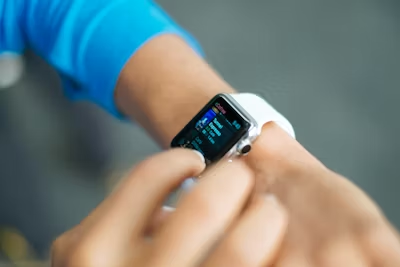
Now, let’s discuss the best fitness smart watches in detail.
Fitbit Versa 4
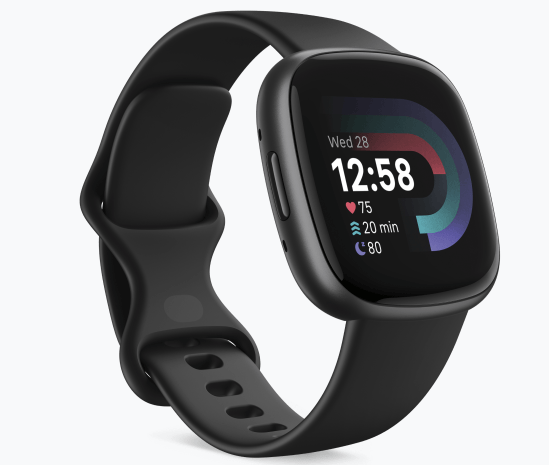
Image Credit: Google Store
Tbh, I am personally using this one and it is really amazing. The Fitbit Versa 4 is a great choice for anyone who wants reliable fitness features without spending too much. The design is lightweight, and the silicone strap feels soft and breathable. Many people love that it looks slightly like an Apple Watch but with a friendlier price tag.
The touchscreen works smoothly and the display is bright enough to read under sunlight. Notifications, calls and app alerts show clearly. On Android phones, quick replies and voice responses are available, although iPhone users can only view notifications. Suppose someone needs a watch that handles basic communication and fitness tracking at the same time. The Versa 4 fits perfectly.
In terms of fitness features, it covers heart rate tracking, sleep stages, SpO2, stress levels and step counts. Built-in GPS works well for casual workouts but might not satisfy long-distance athletes who want extremely accurate routes. Battery life usually lasts five or six days, which is helpful for people who find daily charging annoying.
Sleep tracking is one of Fitbit’s strongest features. The Versa 4 gives a morning sleep score and shows the amount of light, deep and REM sleep. Many people rely on this feature to adjust lifestyle habits. The only downside is that some advanced metrics require a Fitbit Premium subscription.
Pros
Affordable compared to many models
Lightweight and comfortable
Good sleep tracking
Long battery life
Easy for beginners
Cons
Some features are locked behind a subscription
GPS accuracy is average for serious athletes
Best for
Everyday fitness, casual runners, people who want simple tracking
Apple Watch Series 11
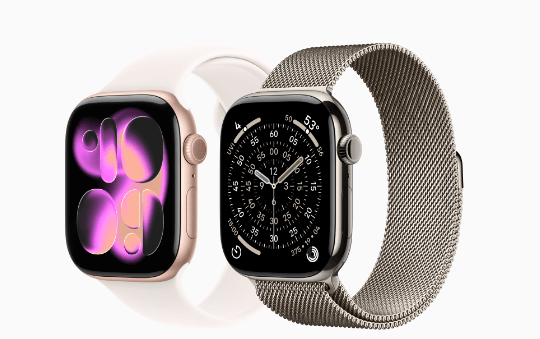
Image Credit: Apple
The Apple Watch Series 11 blends perfectly with the iPhone. Notifications sync instantly, messages can be replied to, calendar events show up smoothly and directions from the phone appear automatically on the watch. The whole vibe feels like the watch is part of the phone instead of a separate device.
The new scratch-resistant glass adds durability, and the interface feels cleaner with watchOS 26 and the Liquid Glass design style. AI-powered widgets show useful info at the right time. Health tracking is strong with ECG, sleep score, hypertension alerts and more. While the watch does not have dual-band GPS, the accuracy is still good for most people.
Battery life is around 25 to 30 hours. This means daily charging, which is normal for Apple Watches.
Pros
Best experience for iPhone users
Accurate tracking
Beautiful interface
More durable display
Cons
Daily charging
Not ideal for Android
No major reason to upgrade if using a recent model
Best for
iPhone users, lifestyle tracking, everyday fitness
Garmin Vivoactive 6
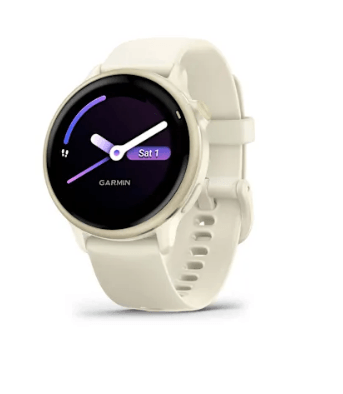
Image Credit: Garmin
Garmin is known for serious fitness tracking, and the Vivoactive 6 feels like the perfect blend of accuracy, design and advanced features. The AMOLED display makes stats easy to read, and the watch connects to satellites without needing a phone.
Garmin’s algorithm features like Body Battery and Morning Report help track energy levels, stress and recovery. In the opinion of many athletes, these tools are incredibly useful for maintaining balanced training. The accuracy of Garmin tracking often beats other brands when it comes to running, hiking or cycling.
Water resistance, incident detection, blood oxygen monitoring and sleep tracking are all included. Garmin also launched Connect Plus, a paid service, but the watch works perfectly without it.
Pros
Accurate GPS
Bright display
Great for training
Accurate health metrics
Cons
More expensive than basic trackers
Connect Plus subscription is optional but not necessary
Best for
Active lifestyles, runners, gym workouts, outdoor training
Fitbit Charge 6
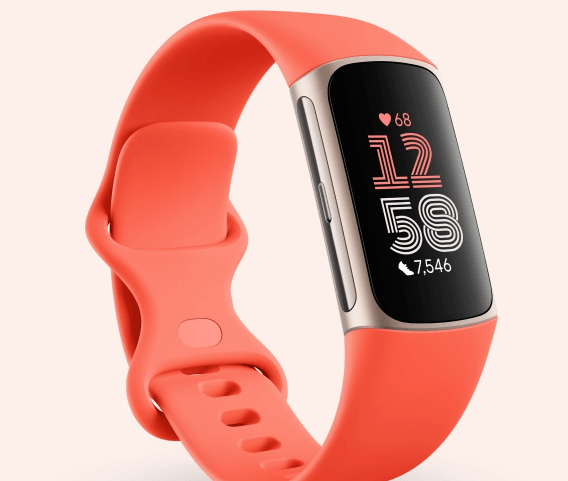
Image Credit: Google Store
The Fitbit Charge 6 offers surprisingly powerful tracking. Since Fitbit is owned by Google now, the Charge 6 supports Google Maps, Google Wallet and music control through YouTube Music Premium. The app looks redesigned and easier to use with cleaner visuals.
One of the best parts about the Charge 6 is the battery life, which lasts around a week for most people. The device also supports heart rate monitoring, ECG, sleep stages and auto workout detection. The GPS accuracy has improved compared to older Charge models.
Suppose someone wants a fitness tracker that handles essentials without feeling bulky. Charge 6 is a strong choice. It is cheaper than most watches on this list which makes it perfect for beginners.
Pros
Budget friendly
Week-long battery
Accurate heart rate tracking
Light and comfortable
Cons
Premium features require a subscription
Smaller display than smartwatch models
Best for
Beginners, basic tracking, people who want good accuracy without spending too much
Google Pixel Watch 4
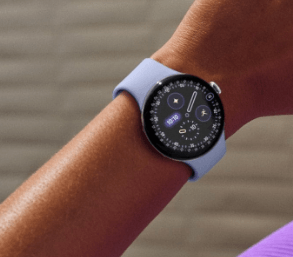
Image Credit: Google Store
The Google Pixel Watch 4 blends Google software with Fitbit health tracking. It has dual band GPS, a bigger battery than the previous model and comes in two sizes, which many people love about it. The display looks larger with thinner bezels and the watch feels premium.
Health features include ECG, SpO2, stress tracking, skin temperature, cEDA and sleep analysis. Six months of Fitbit Premium is included, although basic insights are available without a subscription.
What makes the Pixel Watch 4 stand out is its Gemini-based health coach and workout builder. Athletes will appreciate the Cardio Load and Morning Brief features that show insightful information before starting a workout.
Pros
Accurate dual-band GPS
Better battery
Two size options
Strong AI features
Cons
Not as durable as some other models
A rounded dome shape may not appeal to everyone
Best for
Android users, everyday fitness, people who want AI coaching
Apple Watch SE 3
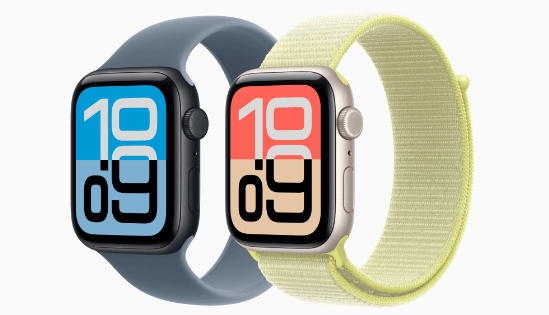
Image Credit: Apple
For iPhone users who want something more affordable, the Apple Watch SE 3 offers great value. It has the same chipset as the higher-priced models and supports fast charging. The design is light and comfortable.
The SE 3 does not have ECG or SpO2 but most essential features are included. For the price, it is one of the best options for balanced performance.
Pros
Affordable Apple option
Good battery life
Fast charging
Beautiful design
Cons
No ECG
No SpO2
Best for
iPhone users who want fitness tracking without spending too much
Garmin Forerunner 970
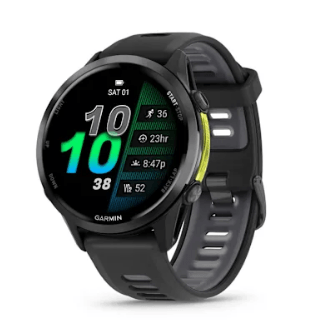
Image Credit: Garmin
The Forerunner 970 is designed for people who take training seriously. It has an AMOLED display, LED flashlight, offline maps and extremely accurate GPS. The watch is durable and customizable, making it perfect for any outdoor environment.
Athletes appreciate the detailed performance metrics and recovery analysis. However, there are mixed experiences regarding battery performance and sleep tracking accuracy. Some users reported small glitches with the display brightness or occasional watch crashes, although these do not affect everyone.
The Forerunner 970 still remains one of the strongest choices for runners who want advanced insights.
Pros
Extensive workout features
Accurate GPS
Durable design
Simple and clean interface
Cons
Some users report minor bugs
Battery life varies
Sleep tracking can be inconsistent
Best for
Runners, cyclists, marathon training
Also Read: Pedometer and Weight Loss: The Best Step Counter and Pedometer in 2025
Factors to Consider Before Buying a Fitness Smartwatch
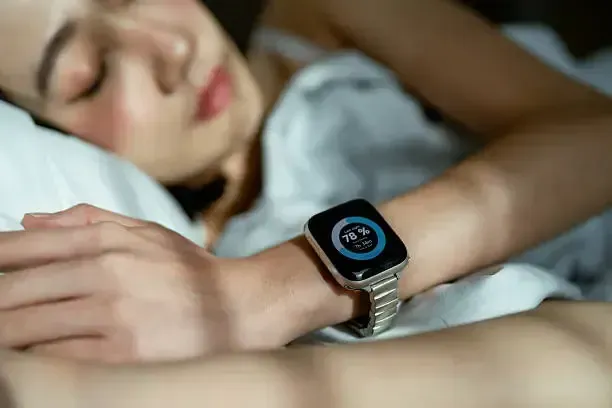
Before picking a smartwatch, it’s super helpful to think about a few key factors. These are the things that will really affect how useful the watch is for you. Here are the main factors to consider:
Budget
Figure out how much you’re ready to spend. There are budget fitness trackers, mid-range watches, and premium ones so choose according to your budget. Think long term: a more expensive watch with accurate tracking might save you frustration later, but a cheaper tracker could be totally fine if you want basic fitness data.
Workout Style
What kind of fitness do you do? Running, cycling, weightlifting, HIIT, and swimming because different smartwatches are better for different activities. Suppose you do outdoor workouts, GPS and accurate route tracking matter. If you lift weights, heart rate and recovery metrics might be more important.
Phone Compatibility
Whether you use an iPhone or an Android phone makes a big difference. Some watches integrate deeply with iOS, like Apple Watch, while others work best with Android, like Google’s Wear OS. Make sure the apps and features you want work with your phone.
Accuracy vs Simplicity
Do you want super detailed metrics, HRV, SpO₂, maps? Or do you need step count, heart rate, and sleep? If you care about coaching and in-depth health data then go for a more advanced fitness watch. If you want something simple that still tracks your daily life then a basic tracker might be best for you.
Battery Life
Some watches last for a week or more while others need to be charged every day. Think about how you use your watch: Do you run long sessions? Do you want an always-on display? These affect the battery. Also consider how often you're okay with charging, daily charging feels normal for some but annoying for others.
Comfort and Wearability
The watch is something you’ll wear all day, so it must feel comfortable. Check the strap material, weight, and how it fits your wrist. Also think about whether the screen size and design match your style: a bulky sports watch vs a sleek minimalist tracker.
Water Resistance
If you swim or sweat too much then make sure the watch is water resistant. For swimming, look for ratings like 5 ATM. For casual sweat, lower resistance may work.
Smart Features
Do you care about smart notifications, calls, music control, or contactless payments? If yes, you’ll want a smartwatch, not just a fitness band. Also, check whether it supports voice assistants or AI-powered coaching as some watches do a lot more than count steps.
Health Monitoring
Decide which health metrics are most important: heart rate, SpO₂, stress, temperature, ECG, sleep quality, etc. If long-term health tracking is your goal, getting a watch with more sensors and reliable metrics is worth it.
Durability
If you’re active or adventurous, pick a watch that’s built tough. Check whether the watch has a scratch-resistant screen or a strong case. Also consider how easily you can change the strap, since you may want different straps for sports vs daily wear.
FAQs
The Garmin Forerunner 970 is one of the best watches for running due to its accurate GPS and advanced training analytics.
Apple Watch Series 11 provides the smoothest experience for iPhone users due to deep device integration.
GPS is helpful for running, hiking and cycling. For general fitness, a built-in GPS is not mandatory.
The Google Pixel Watch 4 is the top pick for Android users because it blends Google software with strong Fitbit health tracking.
Yes, Fitbit models like Versa 4 and Charge 6 remain popular because they are simple, accurate and budget friendly.
Conclusion
Choosing the right fitness smartwatch in 2025 is not just about picking the most expensive or fancy one. The best watch is the one that fits your lifestyle, your vibe and the way you move every day. Whether you run, swim, cycle, lift weights, or want to stay active, there is a watch that can match your routine.
Things like battery life, comfort, health tracking, smart features, and phone compatibility all matter. Suppose someone wants something simple and affordable, a Fitbit Charge 6 or Versa 4 is a great choice. If someone wants advanced tracking, precise GPS, and AI coaching then a Garmin watch or Apple Watch Series 11 works better.
At the end of the day, a smartwatch is more than a gadget. It’s like a little fitness expert on your wrist that keeps track of your progress, motivates you, and helps you take better care of yourself. Picking the right watch can make fitness easier and even fun. The best watch is the one that feels natural to wear every day because a watch that stays on the wrist always delivers better results.
With Love,
Pempi 💖

Hi, I'm Pempi…
I am a Certified Health Coach, and I help women develop walking habits that feel natural and sustainable - the kind that last years, not weeks.
You can also book individual sessions or shop my current healthy habit programs.
Let me support you. 💖
Join my Tribe
Health Coach Pempi
I'm a certified health coach who combines the psychology of habit formation with practical, anti-gym strategies for busy women who want to feel energized, not exhausted, by their health routine.
© 2025 Health Coach Pempi Sitemap



